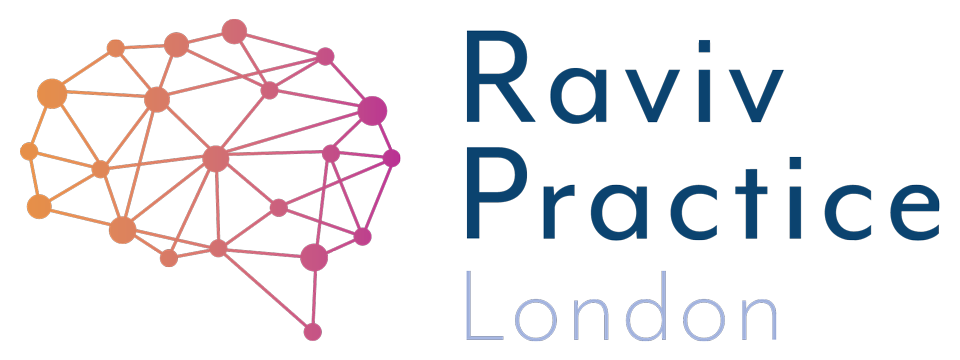
Blog
Usha Patel, Neurocognitive Therapist and Director of Raviv Practice London shares her first-hand experience of working with children /adults and the latest research and upcoming events in her series of blog posts.
My Bal-A-Vis-X story, and how it could help you!
Beta is a 'fast' activity, present when we are alert, attentive, engaged in problem solving, judgment, decision making, or other focused mental activity – find out how Bal-A-Vis-X helps beta brainwave activity.
What is Motor Planning?
Motor planning is the ability of the body to create movement so we can perform a task. When playing with mobiles, babies will thrash their arms and legs on seeing the suspending toy. They aim for the toy but do not grab it.
Help! My child can’t decide which hand to write with!
Not all children establish a hand preference by age 5.
If a child cannot decide which hand to use, it is a big problem, and we cannot just force the infant to write with a particular hand; it has to fall into place naturally.
Why can’t my child catch a ball?
Children all learn ball skills at some point, and one may expect that they have been able to learn how to catch a ball by ten years of age. But this is not the case for some children with possible symptoms of neuro divergence.
Why is my child’s body always floppy, and why does he run funny?
Parents notice all sorts of things about their children, and one thing that crops up time and time again is that they are worried about their child’s awkwardness and problems with co-ordination.
What is the best way to help my undiagnosed child, age six?
What is the best way to help my undiagnosed child, age six? Most neurodivergent conditions can not be diagnosed before the age of eight. Between the parent suspecting there is a problem and getting a diagnosis what can be done, and how can the parent help.
What is working memory, and why is it so important?
What is working memory, and why is it so important? If your child has difficulties following instructions, is challenged with mental maths or reading comprehension understanidng working memory is the first thing you need to learn about.
What sort of therapist can help my undiagnosed child?
What sort of therapist can help my undiagnosed child? If you are a parent looking for help for your child who dislikes the idea of studying or school work you need to know what alternatives there are to tutoring.
When do I need a tutor for my child if I suspect they have dyslexia?
There is no way to have a definitive diagnosis of dyslexia before the age of 8. There are simply too many factors in the child’s development before that age and, of course, every child develops in their own unique way.
"What age can I get my child assessed for dyslexia?"
Is your child at risk of having dyslexia? Are you worried they are falling behind at schoo? Being concerned about academic progress due to possible dyslexia or neurodivergance is something we pay special attention to.
Cogmed Working Memory Training FAQs
Cogmed is the single most scientifically validated method that improves working memory and attention. Cogmed Working Memory Training is suited for individuals with diagnosed and undiagnosed problems. We offer remote training for anyone in the UK or Europe.
Strengths of children with dyslexia + SEND
Children with dyslexia and SEND are more inclined to have a growth mindset and natural resilience. Emotional resilience plays a big role in success in both academics and in life in general. This blog post explores the importance of emotional resilience for all children.
How making you part of the Safe and Sound process can help you and your child make a positive change
You may have heard about The Safe and Sound Protocol and how much it can help children who are neurodivergent or have special needs. However, our experience shows that working with parents first make a huge difference.
Are you worried about your child and their behaviour?
Are you worried about your child and how they behave at home and/or at school? Don’t worry – you are not alone, and help is at hand. The first step in addressing that behaviour is understanding it.
“My child is in the 99th percentile for reading but he is not able to tell me when he is hungry or thirsty”
Traditionally, our mainstream education system tells us that a child is successful when they achieve at classic activities, such as reading and writing. We rarely associate academically bright children with learning difficulties…
What the UEFA final England Versus Italy taught us about emotional brains
I am the first to admit I am not the biggest football fan. After the allocated 90 minutes of play and no overall winner, I blurted out “oh! they will go into 'overtime!’” My child's eyes rolled, and my family corrected me to 'NOooo! EXTRA TIME!'
How changing habits can aid concentration
Creating habits or routines can have a positive impact on those with poor concentration and who are prone to distraction.
Is your child able to stay on task?
Can your child sit still and do their homework without constant reminders to stay on task? If this is a challenge, they may benefit from developing their Executive Functioning Skills (EFS).
What Is Executive Functioning and How to Identify the Weak Areas
Does your child have problems with finding homework, talking out of turn, or temper tantrums? He may have executive functioning problems. These skills help us manage daily life and deficiencies can lead to underachievement if not treated.
How to Observe Your Child and Understand Where Their Concentration Fails
Poor concentration in children has many causes. Some professionals may rush an ADHD diagnosis and medication. Instead, learn how to observe your child at home and work with a professional who can use therapies beyond medication to get at the root of your child’s behavioural issues.






















